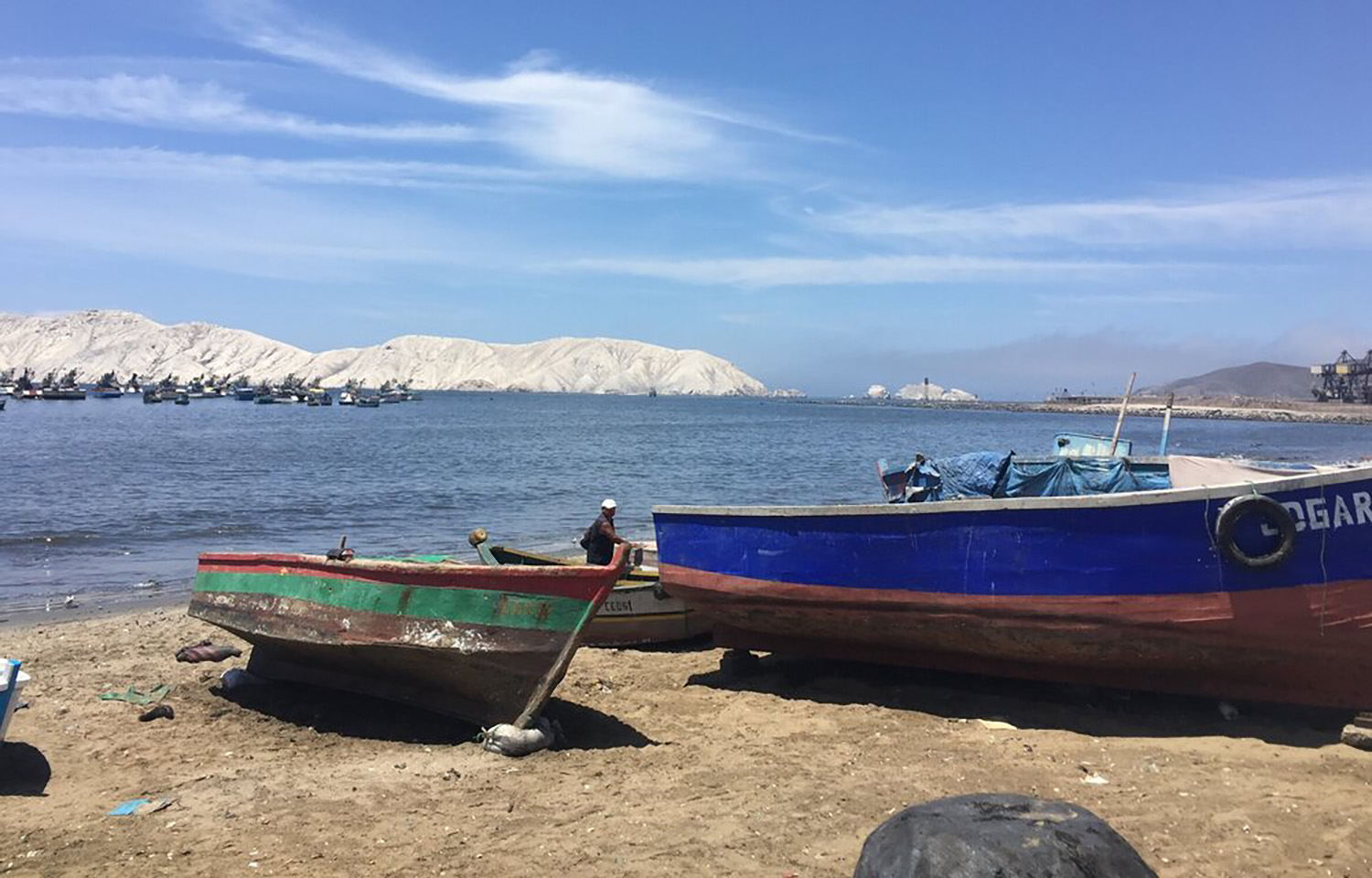Instances of fishing fleets that have carried out illegal, unreported, and unregulated (IUU) activities entering Peruvian ports have not only continued but intensified, despite the Peruvian government recently moving to enact legislation to better combat this illicit activity.
In June, Peru’s Production Ministry announced it is preparing a decree that aims to strengthen the country’s fight against IUU fishing – mainly of squid – by foreign vessels in Peruvian waters. The regulation will require any foreign vessel looking to enter Peru to have a government-sanctioned SISESAT satellite device onboard and activated, regardless of the reason for its entry.
Currently, there are nearly 200 Chinese vessels fishing for squid up to 230 miles off the Peruvian shore Peruvian National Society of Industries Fisheries and Aquaculture Committee President Alfonso Miranda said in a release. While the presence of this foreign fleet is “inevitable,” he said it is urgent to increase electronic surveillance and naval patrols in the area where they are operating.
“Controls must be reinforced, and we cannot tolerate the violation of national and international rules,” he said.
To date in 2024, 70 Chinese vessels have docked in Peru, many of them lacking the satellite control system required by law and possessing records of illegal fishing and human rights abuses against their crews. That total is higher than that registered during the same period last year, National Society of Artisanal Fishing (SONAPESCAL) President Elsa Vega said, without providing specific 2023 figures.
According to Marine Starboard Intelligence – a platform that identifies the real-time position of ships via a collision avoidance system – there are currently 10 such foreign vessels in Peruvian territory, either disembarking crew members, renewing certificates, or in transit after receiving port services. Another three Chinese-flagged ships – the Jin Hai 858, Ning Tai 35, and Pu Yuan 816 – respectively docked on 4, 5, and 21 June and are still receiving maintenance at the Peruvian Navy shipyard at the port of Chimbote.
June also saw Peru allow the arrival of vessels with clear indications of having partaken in illegal fishing, with ships such as the Lu Yan Yuan Yu 007, Wei Yu 19, and Ning Tai 62 entering Peru's ports. According to The Outlaw Ocean Project, each of these vessels have a history of shutting down their collision avoidance system for several hours or even days in order to avoid surveillance.
Further, according to National Port Authority records, the Ning Tai 3 ship is scheduled to enter national waters and dock soon. This ship has a recorded history of turning off its anti-collision system to avoid being tracked.
“In view of this, we will be vigilant [to ensure] that the mistakes of previous administrations are not repeated, and we hope that the positive changes that the authorities have been promising will finally be implemented,” Vega said. “We need concrete action now to protect our waters and our fishers. If we do not act immediately, this situation will only get worse.”
The promised governmental decree cannot come soon enough, according to Miranda, as it “will not only protect the Peruvian sea from IUU fishing but will also contribute to maintaining a good bilateral relationship and positioning Peru as a leader in the sustainable management of fisheries resources.”








